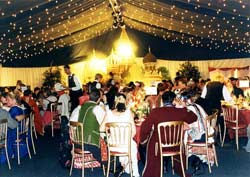|
Foreign languages in the UK
 Jeremy Bohl
Jeremy Bohl is a student from Oxford University. He studies Russian arid French. He's working now as an English teacher at the Municipal Nayanova University in Samara. Jeremy kindly agreed to tell us about his native city, Manchester, and answer our questions about the UK.
Our reader from Penza asks: Which foreign languages do the British study in universities and schools and how widespread is the study of the Russian language?
The British tend to have a poor reputation for learning foreign languages and many people are very lazy1 in this respect. This is the result of the expectation that most people abroad will speak English, so why bother2 learning another language? Surely everyone will understand the phrase, “Do you speak English?” The learning of a foreign language at school is compulsory, however until the age of sixteen when British children are obliged3 to take GCSEs (General Certificate of Secondary Education) the first major public examination in the lives of British children. The language that is preferred has traditionally been French and I would say that this is still the case, Latin was compulsory as well but many schools have ceased to teach it. More recently languages such as Spanish and Italian have become increasingly popular as first languages instead of French, perhaps because of the popularity of these countries as holiday resorts4 for many of the British.
Schools usually offer a second language to their pupils, the most widespread being German, Spanish and Italian. Languages such as Russian, Chinese, Japanese and Greek are less widely taught. As for myself, at the age of fourteen, I was offered the choice of learning Ancient Greek, German, Russian and Spanish. I chose Russian, as it seemed the most interesting to me. The opportunity to learn such a language is unusual, and at my university there are roughly eighty to a hundred people studying Russian. Russian in Britain is an unusual language to learn and there are few universities that teach it. Oxford and Cambridge have the biggest departments but other universities are equally good and hopefully Russian will become more popular as the country continues to open up to foreigners.
1 lazy – ленивый
2 bother – обременять себя
3 be obliged – быть вынужденным
4 resort – излюбленное место
Spare time at University
SE asks: We know that you are a student at Oxford University. Would you, please, tell us something about the way in which you and other students spend their spare time in Britain?
 British students spend their spare time in many different ways, socializing1, playing sport or music and occasionally working! Obviously, studying takes up the majority of one’s time as this is the primary aim of going to university, but there are many other aspects to a student’s life which are just as valuable. Indeed, the experience of going to university is as much about learning to socialize, making new friends and finding new interests as it is about furthering one’s academic knowledge.
British students spend their spare time in many different ways, socializing1, playing sport or music and occasionally working! Obviously, studying takes up the majority of one’s time as this is the primary aim of going to university, but there are many other aspects to a student’s life which are just as valuable. Indeed, the experience of going to university is as much about learning to socialize, making new friends and finding new interests as it is about furthering one’s academic knowledge.
When not studying, many students frequent2 the Student Union bar of their university where you can meet fellow students and enjoy lively conversations over a pint of beer. Rock concerts and debates also often happen there.
Oxford, Cambridge and Durham are slightly different in this respect as they are collegiate universities3. This means that there are college bars as well as a university Student Union. Colleges at these universities are frequently small (my college, St Catherine’s is one of the largest in Oxford and has only five hundred students), as a result students get to know each other quickly and there is a homely4 atmosphere. The life of a student at these universities invariably revolves5 around their college. Each college has a plethora6 of sports teams, societies and musical groups and each student is encouraged to take part in the extracurricular7 activities of the college. These universities particularly emphasize8 rowing which is traditionally the most popular sport at Oxford and Cambridge. At other universities where there is no collegiate system, extracurricular activities take place on a university wide basis but there are still many students who have a range of interests outside their studies.
As for myself, I also try to balance my studies with sport, music and socializing. In Oxford I play the trumpet in a college orchestra and go to concerts as much as I can. I play squash9, a typically English game, and football for my college. For me, doing things outside my studies helps to keep me sane when I have a lot of work and I am very stressed!
1 socialize – общаться (проводить время с другими студентами)
2 frequent – часто посещать, бывать
3 collegiate university – университет, состоящий как из факультетов, так и из автономных колледжей, объединённых общим названием
4 homely – уютный
5 revolve – вращаться
6 plethora – изобилие
7 extracurricular – (зд.) внеучебный, внеаудиторный
8 emphasize – придавать особое значение, акцентировать внимание
9 squash – сквош (игра в мяч с ракеткой)
Читать еще в этой рубрике:
Читать еще в этом номере:
|
|











